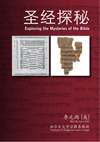Abstract
This book employs a biblical exegetical method that pays close attention to the interrelationship among multifold books within the Bible. Since the Bible is an amalgamation of ancient people's theological reflections, stemming from different historical and cultural milieus and created by numerous writers and editors, it is not simply story, but thoughtful story. Indeed, the Bible is the result of intensive intellectual and spiritual processes into which critical discernment was invested before the decision was made regarding what had to be put into writing, and how it was to be put into writing. To do justice to this nature of the Bible, any interpretive method should resist the temptation of molding the variety of perspectives operative in the Bible into a unified whole, and also be cautious not to ignore any conceptual dissonance and conflict evident within it. Instead, a biblical exegetical method must reconstruct the interrelationships among multiple books, while neither sacrificing the uniqueness of each individual book nor harmonizing them. By reconstructing the interrelationship within the biblical books this book can do more than paraphrasing what the Bible in its entirety says and explain it in its own terms and in its own right, without imposing any preconceived idea of what it supposes to say.
This book has three major parts. Part One addresses briefly why anyone needs to read the Bible; what the Bible is anyway; and how one reads it. Part Two seeks to speak of the essence of the entire Bible and how that story unfolds itself throughout the literary framework of the Bible. The eight literary sections of the Bible are integrally interrelated to advance God's story: the Pentateuch states God's plan for restoring the broken relationship with the world via a particular nation, Israel, whereas the History of Israel accounts their failure to accomplish God's universal plan. The Writings stresses the perfect-ness of God's plan and provides anecdotes for Israel on how to continue to live as chosen yet failed people of God, meanwhile the Prophets illustrates why Israel failed despite of possessing God's law and anticipates the day of reconciliation through God's own anointed one. The New Testament begins with the Gospel, telling that God's plan is finally fulfilled in the life, death, and resurrection of Jesus of Nazareth. This good news is followed by the History of Early Church reveals how the universal church is successful in including of all people in God's story, while the Letters deals with many issues resulted from this apparent success, such as how to proclaim the good news and serve others as Jesus would have done. The last section of the Bible is an apocalyptic literature, the book of Revelation, telling that Christ-followers must endure the persecutions in the present world in view of the coming new world. Part three of this book ends with a list of a selected bibliography according to each section.
 Exploring the Mysteries of the Bible
Exploring the Mysteries of the Bible
 Won Lee
Won Lee